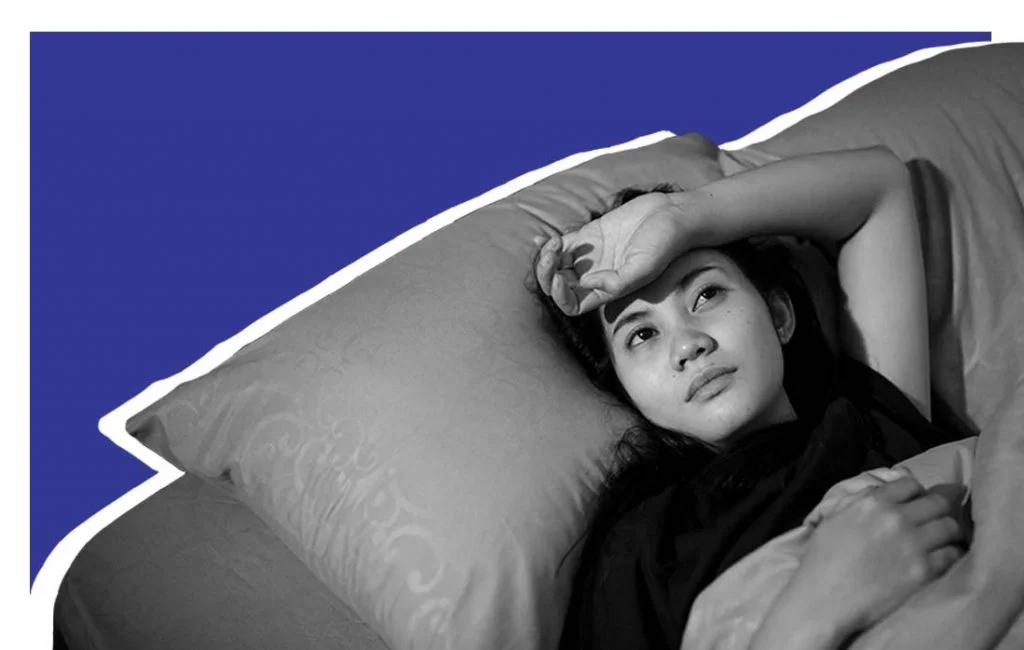
As we get older, it can sometimes seem more difficult to get that all important shut eye. With work deadlines looming, family responsibilities on the rise and potential money worries on the horizon, it can seem like getting a full, decent night’s sleep becomes more difficult than when we were younger.
If this is the case for you, you might not be imagining it. A recent study found that people around the age of 40 tend to get less sleep (1). The study, which was published in the journal Scientific Reports, looked at data from over 11,000 participants aged six and older from the Health and Nutrition Examination Survey (NHANES) and found that average sleep times tend to form a “U shaped” curve throughout life.
The surveyed participants slept the most around age 20 and and the least around age 40, with the curve trending upwards again around the age of 50. The study’s researchers wrote: “Our data suggest that American adults may maintain sleep efficiency at a certain level for a long period through adulthood, although they may have the least sleep at middle age.”
The study’s authors also noted gender differences in the data, adding that, although women tended to sleep longer than men at “most life stages”, this changes around midlife: “Women were more likely to experience sleep interruption for caregiving work, particularly among parents of young children. The overall female advantage in sleep time is tempered by greater burden of interrupted sleep that women face and the larger male advantage in leisure time that exists throughout midlife.”
So, what else could be contributing to people around the age of 40 getting less sleep? And how can you get better sleep if you’re one of the 40-somethings who struggles to get a restful night? We consulted the experts to find out.
Experts Weigh In
Dr. Neil Stanley, independent sleep expert for Sleepstation, notes there are a number of reasons why people may sleep less during midlife. He explains: “One important change is that we start losing our deep N3 sleep from about middle age. This means that although we don’t need less sleep it is more difficult when combined with the other issues impacting sleep, to get the sleep we need”.
Middle-aged adults are sometimes referred to as the “sandwich generation” as they are the age group most likely to be caring for both younger children and aging parents, which can inevitably have an impact on sleep. The 40s can also be a peak time for many people’s careers, with many people working jobs with long hours and plenty of responsibility. They might also have financial concerns, such as saving for retirement or their children’s education, which can lead to stress and restless nights.
However there are other issues which can contribute to sleep issues around middle age.
Dr. Naheed Ali, lead writer at Sleep Bubble, also added that there are biological reasons that might lead to someone getting less sleep around midlife. He says: “Both men and women undergo hormonal shifts in their 40s. Women approach or begin menopause, leading to changes in sleep patterns, while men might experience a decrease in testosterone, which can affect sleep. The body’s metabolism also starts to slow down, which might affect energy levels and sleep cycles.”
So, is sleeping less around midlife just something you have to accept? That’s not the case, according to our experts, who say there are often lifestyle changes you can make to help improve your sleep.
Dr. Stanley says, “It is important to make the time to get the sleep you need as well as improving the key lifestyle behaviors that may be impacting your sleep. By looking after your mental and physical health, you will see your sleep improve.”
This includes regular advice for sleep hygiene, such as trying to go to bed and wake up at the same time each day to regulate your body clock. You should also take steps to reduce stress in your life where possible with relaxation techniques like meditation, deep breathing exercises, or reading rather than looking at screens before bed.
Take some time to design your sleep environment to be comfortable and relaxing as well, making sure your room is cool and dark and try adding in some calming music or white noise to promote relaxation if it suits. Regular exercise can also promote better sleep — although it’s best not to exercise right before you go to sleep.
If sleep problems continue, it would be wise to consult with a healthcare professional to rule out sleep disorders or other underlying health conditions.
Dr Ali stresses: ”Don’t just brush off sleep troubles as a normal part of your 40s. Listen to your body, be proactive, and take control of your sleep. With some effort to address the root causes, you can still wake up refreshed and ready to enjoy each day in your 40s to the fullest.”
Sources
- Su, S., Li, X., Xu, Y. et al. Epidemiology of accelerometer-based sleep parameters in US school-aged children and adults: NHANES 2011–2014. Sci Rep 12, 7680 (2022). https://doi.org/10.1038/s41598-022-11848-8
Stanley, Neil. Author interview. August 2024.
Ali, Naheed. Author interview. August 2024.


























